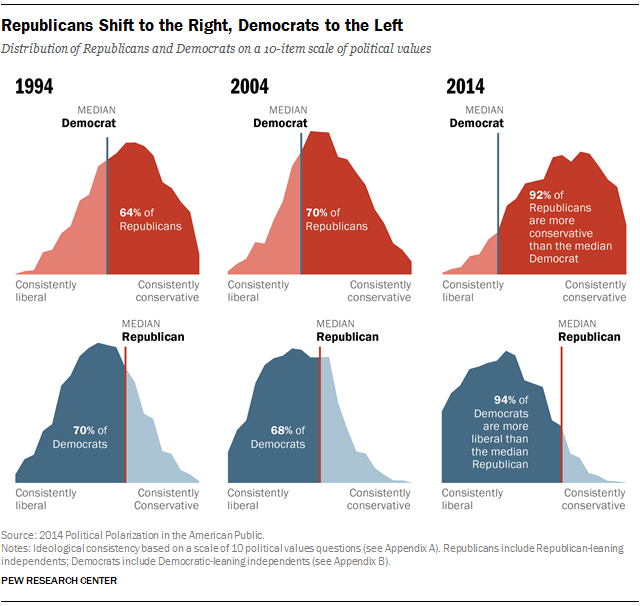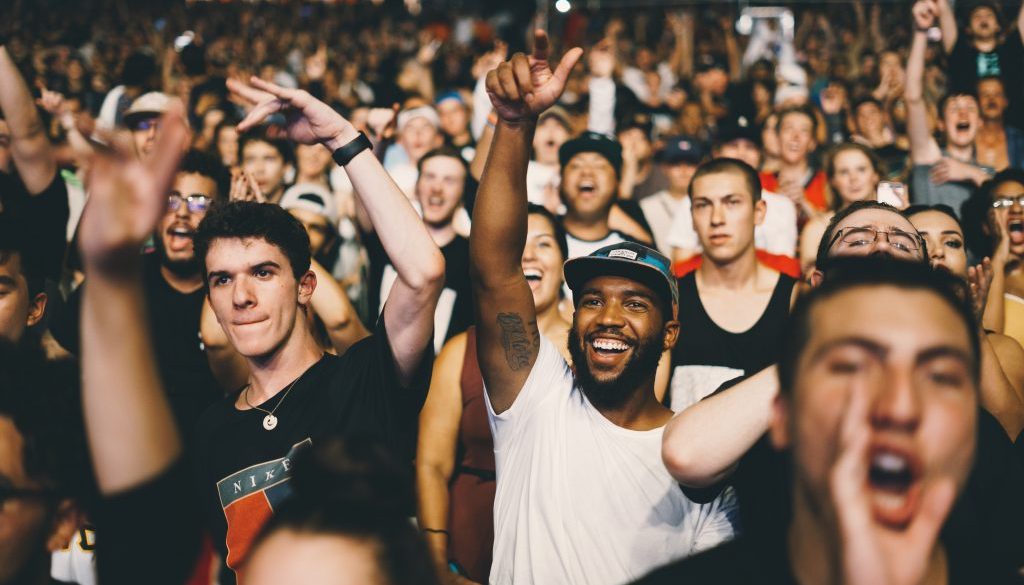How Group Polarization is Tearing us Apart
We are living in a divided world. Groups are fighting over beliefs, values, and public policy. Sometimes, it seems these groups make decisions and statements that are more and more extreme. Unfortunately, this is often done without regard for how it will effect our greater society. As unfortunate as these circumstances are, they have been documented across societies and history. Luckily, social psychology can give us some insight into why group polarization happens.
Group Polarization Definition
Group polarization is when a group makes decisions that are more extreme than the beliefs or decisions of individual group members. At first glance this seems impossible. How could the group be more extreme together than its members? So, let’s break this down a little bit.
An Example
Imagine that you are among a group of feminist women discussing women’s issues. You all intend to write a letter to your congress person. For the sake of this example, imagine that you already consider yourself a feminist. Everyone came into this conversation with maybe one or two issues they really wanted to include in the letter. As the discussion wears on, you find out that a lot of people care about the same issues.
Here is the problem: people want to be seen as unique. So they start throwing out ideas of issues to include that seem more and more outlandish. The people who throw out these ideas get more attention and speaking

time. As a result, other people start throwing out more extreme ideas as well. The final result is a strongly worded list of demands to your congressperson. No one individual thinks these are all reasonable, but as a group it is what you came up with.
Research from as far back as 1975 demonstrates a similar situation. Researcher David Myers showed that after discussions about women’s issues, a group ended up with stronger opinions than the individual members held. You can read more about the study here.
Why Group Polarization Happens
Very simply, group polarization happens because you take the most extreme part of a bunch of people, add that all up, and get something more extreme. People want to be seen as unique, so they start throwing out extreme ideas that get them a lot of speaking time and attention. They might not really believe all of the things they are saying, but it sparks lively discussion. Other people then come up with extreme ideas so they can have some speaking time. Finally, you are left with a totally outlandish decision or group belief that individual members don’t necessarily agree with.
If we break down the example above, we can see how this explanation applies. How did we end up with an extreme list of demands to our congress person? It happened because we added together the extreme parts of each individual person! Each person threw out more and more demands so they could get more speaking time. Finally, we ended up with this crazy letter that everyone might secretly think is a little extreme.
This might lead you to ask, why doesn’t anyone speak up to say that the letter has gotten out of hand? There are other social psychology principles that come into play in order to squash dissent. The biggest is conformity. People usually don’t want to go against the group because they are afraid of being ostracized. If we take our example, someone in the group might be thinking, “well, I think this is a little extreme, but I don’t want to be seen as the woman who isn’t progressive enough.”
The Dangers: Racism, Sexism, and Hatred
The example I gave above is pretty benign. The group became polarized and ended up demanding that their congress person do more about women’s issues. However, group polarization can contribute to far more dangerous ideas and decisions.
 Our current political and social climate is steeped in racist, sexist, and hateful language. There are groups that are publicly professing hatred and intolerance for other groups. One reason for this uptick in blatant racism could be group polarization. As more people are publicly given platforms to spew these ideas the groups of people who agree become more and more extreme. For so long this kind of intolerance had been driven underground. As it now bubbles to the surface, the group’s actions, decisions, and views are becoming more severe.
Our current political and social climate is steeped in racist, sexist, and hateful language. There are groups that are publicly professing hatred and intolerance for other groups. One reason for this uptick in blatant racism could be group polarization. As more people are publicly given platforms to spew these ideas the groups of people who agree become more and more extreme. For so long this kind of intolerance had been driven underground. As it now bubbles to the surface, the group’s actions, decisions, and views are becoming more severe.
How It is Tearing us Apart
When group polarization happens, it creates division. Two groups that disagree will end up disagreeing more and have a harder time working together. We can see this as work in our current political system. It seems like democrats and republicans can’t work together to get anything done. One reason could be that due to group polarization the two groups have more extreme views than ever. Rather than sitting down and trying to collaborate with individuals, each sides writes the other off based on their membership to a group.
Divisions like this happen closer to home as well. Maybe you stopped talking to family members or neighbors because they identify with a certain group of people. Rather than discounting them because of who they align themselves with, see if you can get to know the individual. You might find that their ideas are less extreme than you initially thought
Ways to Overcome Polarization
After reading all of this, you might be wondering what you can do to overcome group polarization. Here are a few suggestions:
- When making group decisions, take a silent ballot before any conversation has occurred
- Ask people to do some writing and reflecting about their values before group discussions
- Make one person the designated “devils advocate”. Before any decision is made, have this person be the voice of dissent. Simplypsychology.org has a good explanation of why this works.
- If someone belongs to a different group than yourself, take time to learn about their personal beliefs
In order to combat group polarization, we need to be reminded of people’s individual beliefs. The best way to do this is to have people reflect on their beliefs in writing ahead of time and make decisions privately. People are much less likely to take on other’s extreme views if they are allowed to do express their views anonymously.
In order to live in a society that collaborative we must do what we can in order to combat group polarization. Next time you have a group discussion try to keep the dangers of group polarization in mind.
Receive updates from my blog!

